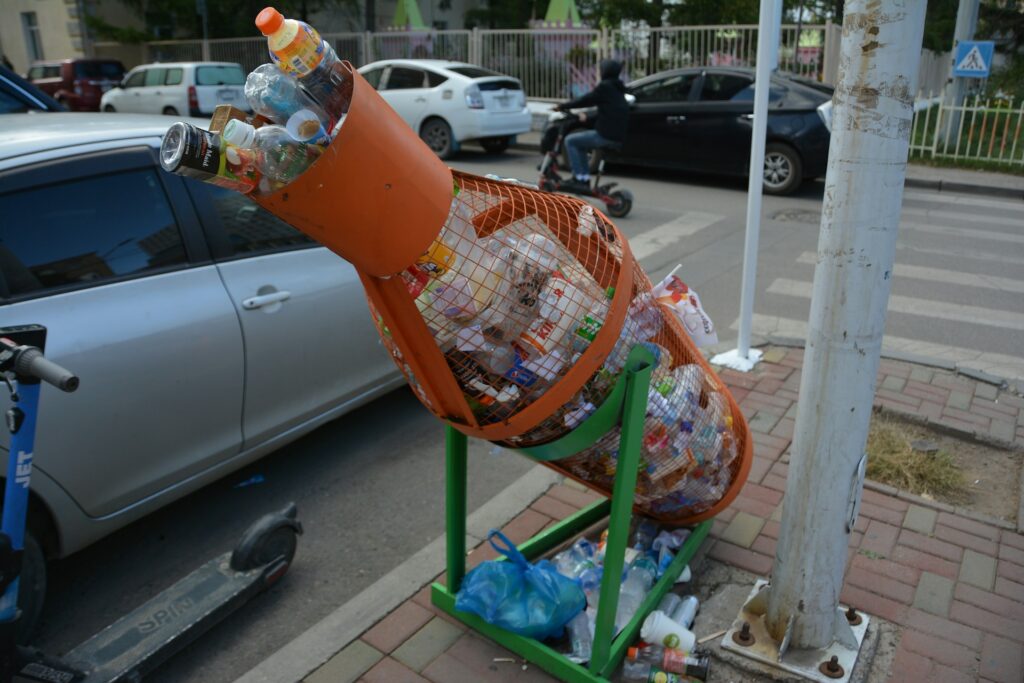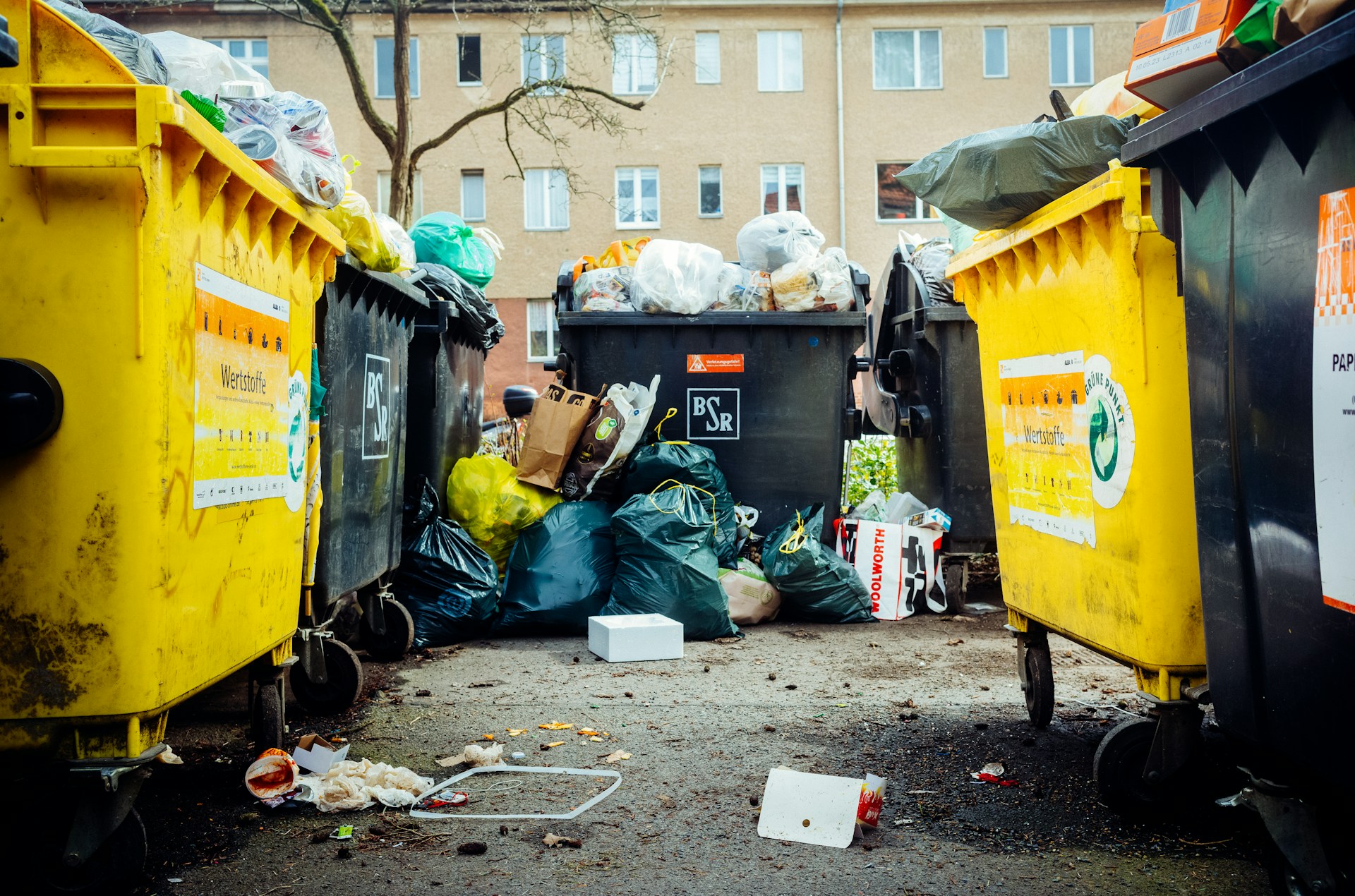Urban Waste Management Challenges
Cities have seen an unmatched surge in population numbers because today more than 55% of global residents inhabit cities while projections predict this figure will climb to 68% by 2050.
Economic development stemming from urban expansion creates new opportunities yet produces vast amounts of waste that produce severe environmental and health problems.
The fast development of urban areas leads to ineffective waste collection practices combined with weak disposal systems which increases environmental pollution.
Cities need proper waste management for preserving sustainable living environments and maintaining cleanliness.
This blog discusses how fast-growing urban areas experience three main waste management difficulties that include burdened waste collection systems, environmental risks and health hazards and difficulties implementing sustainable practices.
Overburdened Waste Collection and Disposal Systems
Cities witness population expansion which directly correlates with waste generation amounts.
The growing waste levels create problems for cities in developing nations since these locations lack the basic necessary infrastructure to properly manage waste streams.
Inadequate Waste Collection Services
The rapid urban expansion in numerous areas outpaces waste collection systems so they cannot meet growing population needs.
Proper waste collection services are absent from unplanned communities and informal residential areas as such spaces end up having their refuse disposed illegally throughout open areas and flowing water bodies and street spaces.
This situation causes both unhygienic housing and environmental contamination.
For instance, cities like Mumbai, Lagos, and Jakarta struggle with inefficient garbage collection due to overcrowded streets, lack of waste bins, and poor waste segregation practices.
A large part of the waste in such cities goes without collection services thus endangering community health.
Overflowing Landfills and Poor Waste Disposal
Due to growing waste quantities urban environments mainly depend on landfills to dispose of waste.
The current situation at these landfills is having a negative impact on the environment because they reach full capacity while having inadequate management practices.
The African landfills represent Olusosun in Lagos which receives huge waste volumes exceeding capacity while persisting in accepting regular daily waste deliveries.
Numerous cities maintain outdated dumping methods because they lack adequate waste processing alternatives thus driving more land pollution and groundwater pollution.
Challenges in Recycling and Waste Segregation
Most urban communities struggle with inefficient recycling operations although recycling constitutes an excellent solution for waste management.
There is no formal waste segregation system in developing cities which reduces the possibility of sorting recyclable waste for collection processes.
Proper government backing is essential to organize and improve recycling operations because informal waste collectors sustain valuable waste collection but need official support to function efficiently.
Environmental and Health Risks Associated with Poor Waste Management
The improper disposal of waste leads to critical environmental risks as well as health problems for the general public.
Proper waste disposal protects the environment but inadequate disposal practices produce air pollution which then poisons air and water resources while contaminating soil leading to more diseases and ecological damage.
Air Pollution from Open Burning of Waste
Many cities burn waste materials because these urban areas lack suitable waste disposal solutions.
The process of burning waste leads to atmospheric emission of poisonous pollutants which includes carbon monoxide as well as dioxins and particulate matter.
The practice of burning plastic waste throughout Dhaka Bangladesh leads to dangerous air contamination which directly impacts respiratory functions.
WHO states ventilation of these harmful pollutants generates lung diseases and cardiovascular problems as well as cancer indications.
Water Contamination from Improper Waste Disposal
Waste disposal without control results in contamination of surface waters and groundwater reservoirs which produces extensive water contamination effects.
Water sources become unsafe for human use when plastic waste mixes with industrial chemicals and untreated sewage in water bodies thus harming sea animals.
An extreme case of poor waste management exists at the Citarum River in Indonesia.
The river’s status as a previous clean-water source has turned into a world-leading contaminated water body because industrial waste mixes with plastic debris.
Spread of Diseases in Poorly Managed Waste Areas
The presence of garbage produces the attraction of pests and rodents and mosquitoes resulting in disease transmission including malaria alongside dengue fever and cholera.
The deficient sanitary conditions present in slums and informal settlements create environments where waste exposure increases disease outbreak possibilities.
Children who reside by the Nairobi Dandora dumpsite face higher rates of respiratory infections in addition to skin diseases and stomach illnesses because of their prolonged exposure to waste and toxic fumes.

The Struggle to Implement Sustainable Waste Management Solutions
The urgent need for superior waste management solutions faces obstacles in urban areas because of budgetary constraints together with political resistance and technological constraints.
Lack of Government Policies and Investment
Cities have weak waste management policies in combination with insufficient budget for developing environmentally friendly waste management systems.
The pursuit of nation-building goals by governments results in sluggish adoption of contemporary waste management systems since environmental needs take a back seat.
Municipal budgets in African and South Asian cities allocate no more than 10% of their funds to waste management which hinders the establishment of efficient waste collection and recycling as well as treatment facilities.
Limited Public Awareness and Participation
Waste management relies heavily on public engagement although urban regions face challenges when trying to implement recycling standards because residents lack awareness about correct waste disposal practices.
Through education and incentive programs cities should motivate businesses together with households to practice waste reduction methods along with recycling and composting.
San Francisco together with Stockholm demonstrate waste reduction success through their broad public education efforts and rigorous waste classification requirements and their recycling financial benefit programs.
Conclusion
The rapid urbanization in areas currently creates an escalating waste management crisis which requires both immediate solutions as well as innovative approaches.
The critical situation where waste collection systems prove inadequate alongside dangerous environmental dangers together with challenges in deploying sustainable policies requires local governments and citizens to join forces with businesses to develop efficient waste management solutions.
Cities that commit resources to waste collection management and recycling bases and educational awareness and technological advancement will establish resilient urban environments with reduced pollution and protected health outcomes for all residents.
Current waste management efforts lead to future cities that will maintain their livable status while showing resilience and practicing environmental responsibility.
FAQs on Waste Management Challenges in Rapidly Urbanizing Areas
1. What stands as the major impediments while managing waste in cities that experience exponential growth?
The main problems stemming from urban growth focus on unproductive waste pickup processes while landfills become overwhelmed as well as missing recycling systems and environment damage poses health risks to residents.
Cities with insufficient waste management capabilities develop open dumping sites while groundwater and atmosphere receive pollution which causes illness spread.
Limited resources together with poor government regulations slow down the creation of environmentally friendly waste management innovations.
2. What specific measures do cities need to take in order to enhance their waste disposal systems?
Cities achieve better waste management through the development of recycling infrastructure along with waste-to-energy projects and enforced waste segregation policies and educational public awareness campaigns.
Waste management efficiency improves through the implementation of smart waste bins coupled with AI-driven collection systems as well as biodegradable packaging technology.
Buildings sustainable waste management requires support from government institutions along with tighter regulations and active involvement from the community.
Also read: Urban Water Scarcity: Solutions for Fast-Growing Cities

